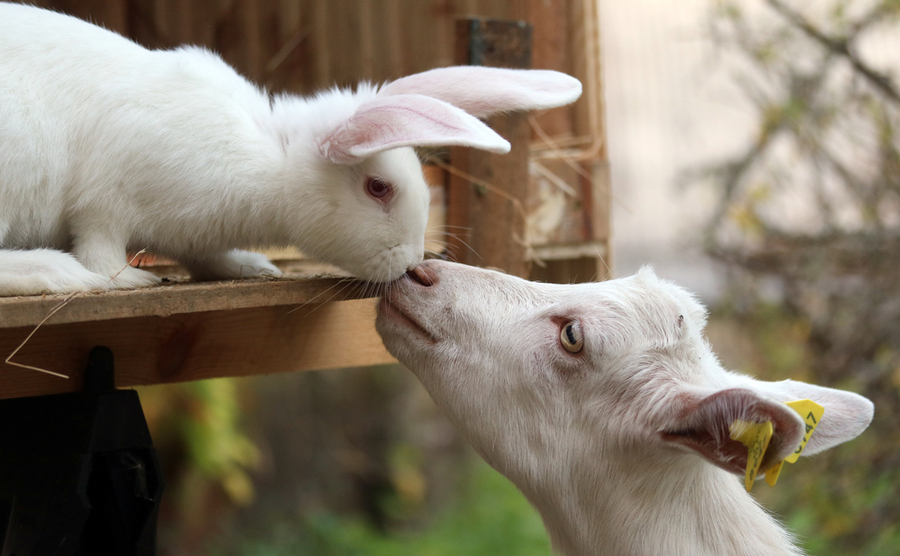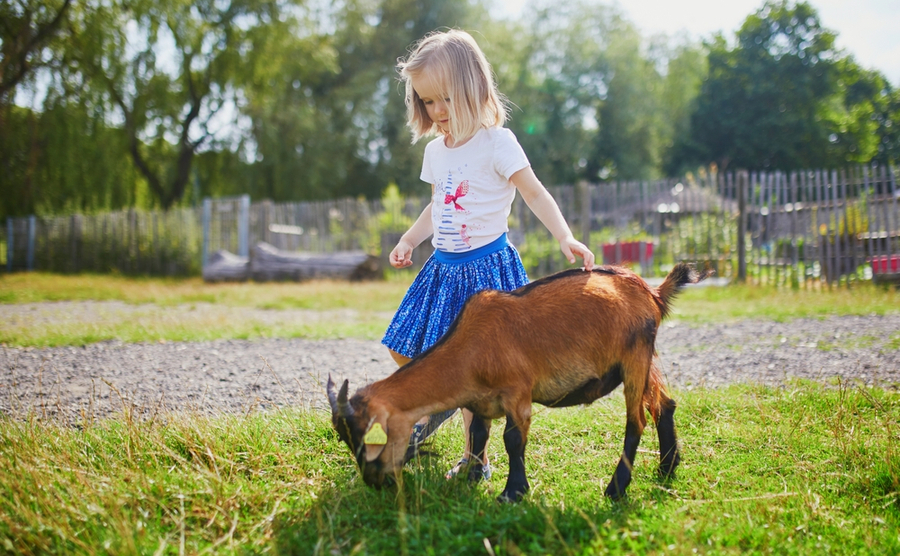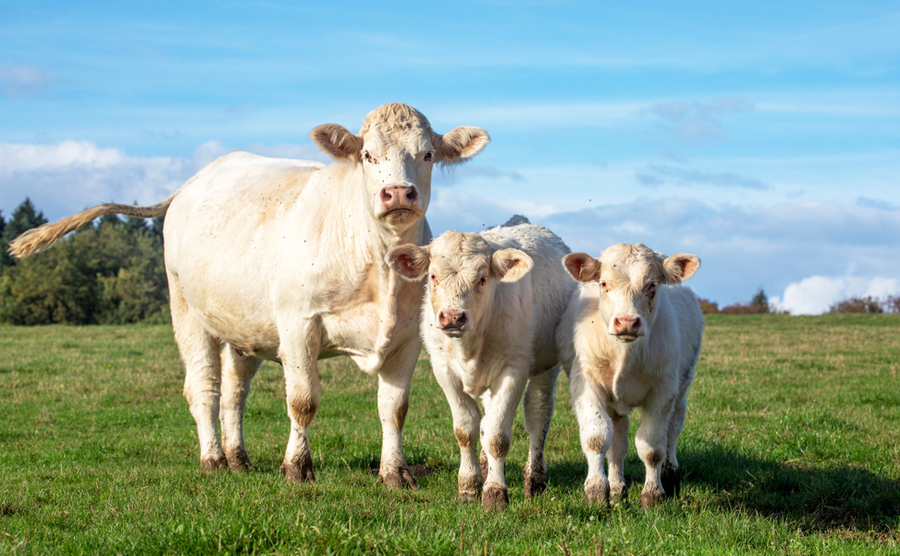Whether you’re a nature lover, a frustrated farmer or just want to ‘grow your own’, the amazing value of properties for sale in France with land is an exciting opportunity. Truly living the good life can be reality, but you need to know what you’re getting into.
Eggs from your own chickens, chevre from your goats, a goose fattening for Christmas, neat rows of potatoes, beans ripening in the sun, raspberries and an orange tree from which to pick your own breakfast…
Many international buyers find that France offers affordable country homes with enough space, if not to be self-sufficient, then certainly to enjoy the pleasures of the land.
Find properties for sale in France with land

Life on your own farm?
Find the right French property with land
A smallholding is defined as a residential property, within its own area of land, usually consisting of under 50 acres in total.
There is no great shortage of properties for sale in rural France that fit the bill, but the question is, what to do with all that land?
A smallholding is defined as a residential property, within its own area of land, usually of under 50 acres.
For some, animals are the perfect answer. However, it’s easy to underestimate just how much land animals need, including statutory requirements. It’s vital to research the specific requirements of the types of livestock you intend to rear.
Your choice will be between taking on an existing smallholding or starting one from scratch. Whether your preference is for a vineyard, equestrian yard, a cottage or market garden or an animal smallholding, there will be properties advertised as already equipped as a going concern.
But if you’re feeling adventurous and you’re ready for the research and work involved, creating your own from scratch can be hugely rewarding.
Be realistic
Understand the reality of day-to-day life as a smallholder, rather than simply the ”idea” of the country life. While rewarding to those that it suits, the lifestyle is not for everyone. It can be a full-time job that severely limits your spontaneity. As preparation, speak to someone who has done it, read the blogs, buy Smallholder magazine…
Lovely as it is being outdoors all day when the sun is shining, you can’t postpone daily jobs because it’s raining or miserable, or you are. Neither, if the animals are relying on you, can you pop off for a spontaneous weekend away, unless you have someone available to take over.
Knowledge of your craft
Every day is a steep learning curve for many who take on animals within a smallholding in France. You will have to research adequately in advance. Lives literally depend on you, not only when it comes to the specifics of animal husbandry, but also in terms of land required, feed, upkeep and shelter. Budget for costs such as fencing, vet bills, water, costs of registration and the bureaucratic tasks required.
Most livestock are social animals, happiest in groups, flocks, herds and clutches. So, indeed, are many smallholders,
Most livestock are social animals, happiest in groups, flocks, herds and clutches. So, indeed, are many smallholders, and you’re likely to find a ready social life and support network. You may well need it. Although all animals can be cute in their own way, they have very different behaviours and natural characteristics. If the garden is your pride and joy, bear in mind that goats will have no respect for your prize plants. They’re all just a delicacy to be chomped.
You will certainly need reliable fencing, and not, in many parts of France, just to keep the animals in, as rewilding brings new challenges (and opportunities, of course).
With animal ownership comes the need for a reliable vet. Indeed, an English-speaking vet if your French is not yet up to coping with an emergency. A good source for information on vets can be found here.
What are you trying to achieve?
Establish this early, as your goals will affect how you set up your smallholding from the start. What are you looking to gain? Is it simply the fun of a few animals for you and your family to enjoy learning from, caring for and spending time with? Are you looking to provide a sanctuary for rescue animals? Maybe you want to create a viable business, to sell locally homegrown produce or home-reared meat.
Of course, your plans can adapt. You might set out wanting a new lifestyle for you and your family, teaching them the importance of knowing where their food is produced, how to care for animals and how to live off the land. Before long you’re sharing that joy in the form of open days, a petting zoo selling home-produced products.

Fun for the kids on your French property with land
Where to find your animals
The first option is to buy animals for your property with land in France. But there are other sources from which to get them. Overwhelmed rescue centres are always glad of the help. Be warned, however, once you start it can be hard to stop and there will always be an animal in need. Unless you set boundaries, you could soon find yourself overwhelmed. Popular animals to rescue include horses, donkeys, chickens, pigs and even llamas. Strictly speaking it isn’t really the done thing to eat your rescue animals either.
If you are not looking specifically to rescue animals, local markets are a popular source from which to buy chickens and piglets. Try other smallholders within your local area too.
Rules and Regulations
Animals require shelter. But as with anything in France, you cannot simply create structures at will, even on your own land. Check with the authorities or mairie which structures and outbuilding require planning permission.
When buying agricultural land in France, even when attached to properties, the government agency SAFER has the right of first refusal for purchase.

Charolais cows
There are rules on registering and recording the movements of livestock. Sheep and goats for example, whether kept for commercial reasons or not, must be tagged and registered. There are faced for owners caught not doing so. Identification is by a numéro d’exploitation, which contains information such as date of birth, country of origin as well as an identification code. Information on this, as well as the required ear tags be obtained from either the local EDE (Etablissement Départemental d’Elevage) or GDS (Groupement de Défense Sanitaire).
In addition, owners must maintain up to date records (a registre d’exploitation) detailing identification, records of all movement and an inventory list of the number of animals within the herd. Following Brexit, the rules have been made more stringent for those bringing animals from the UK. Rules are always changing and you will need to be up to date.
So if animals and the great outdoors give you joy, a property for sale in France with land could be the opportunity you need. What could be better than both the tangible results in the form of delicious food products, but also the pride in what you have achieved?










